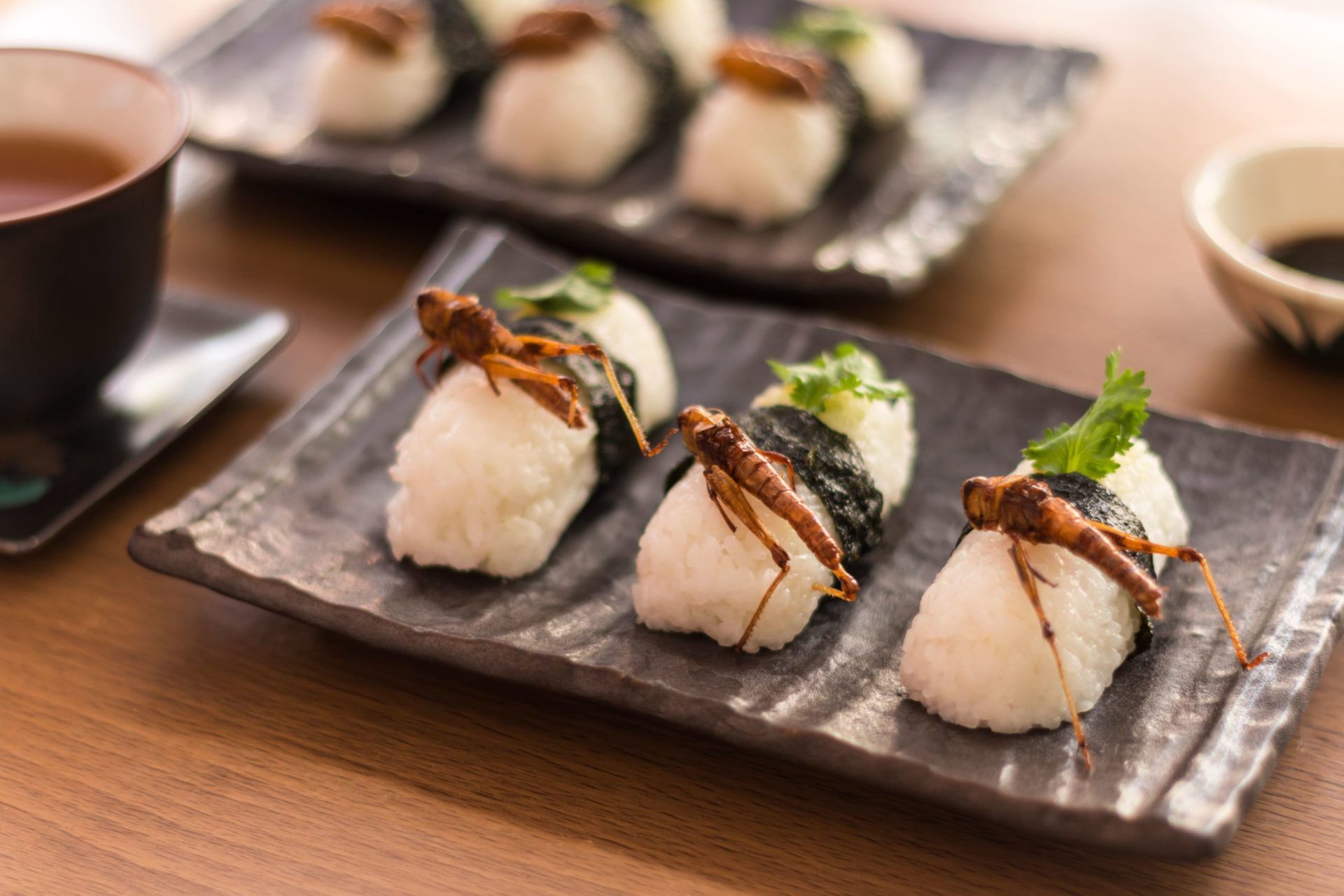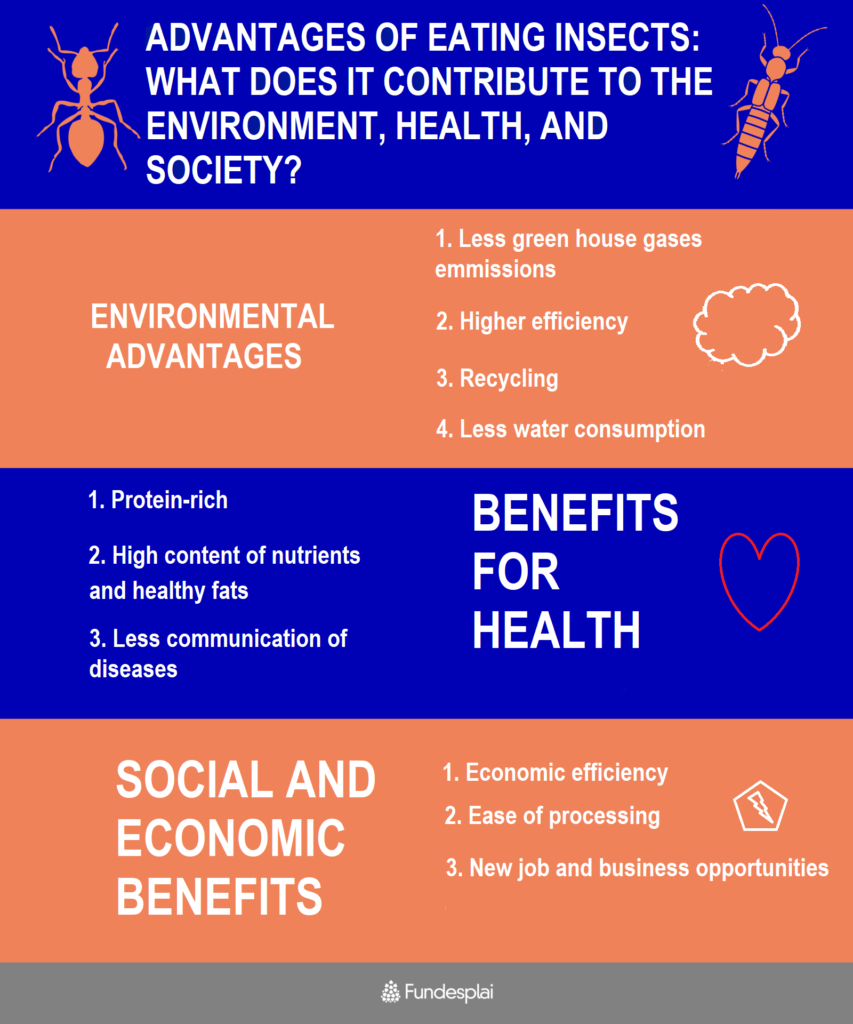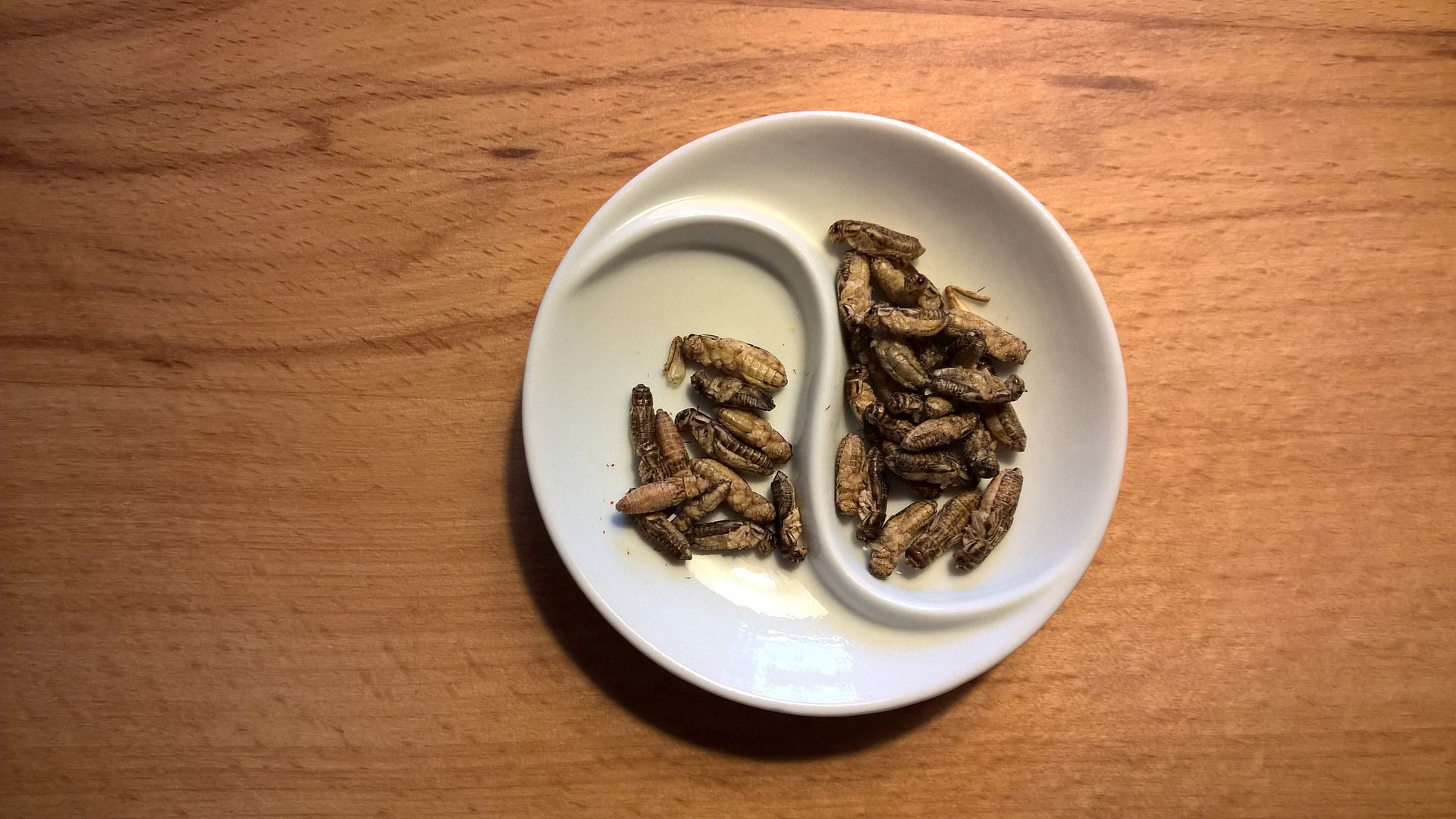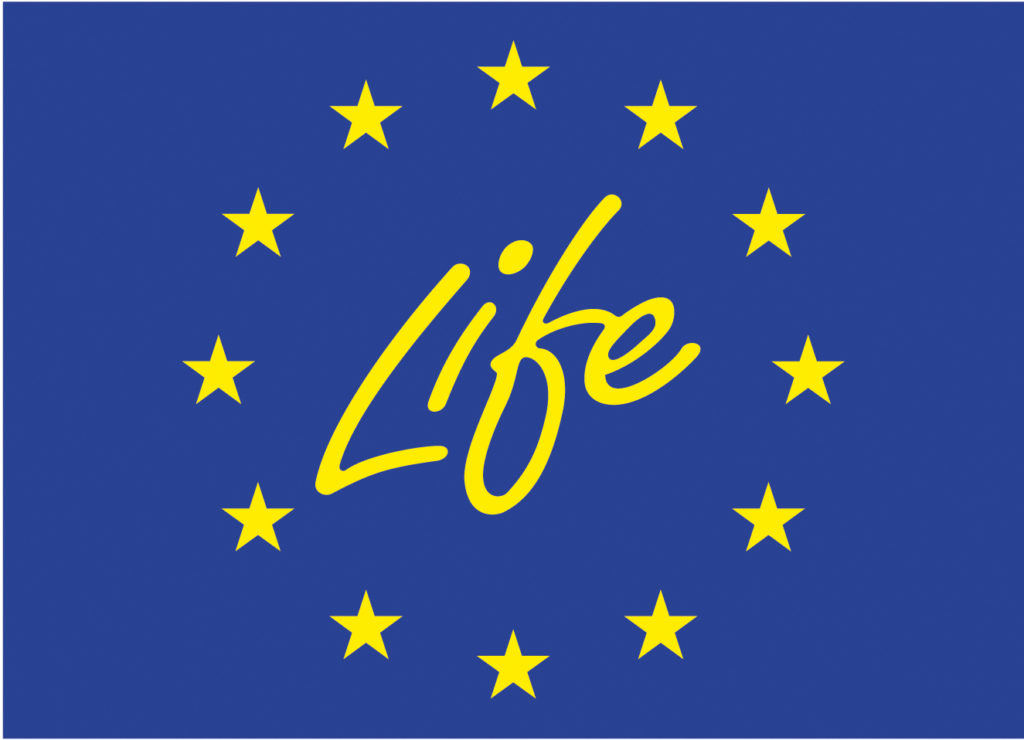
Did you know insects offer many benefits when eaten by people or used to manufacture animal feeds?
The guide “The contribution of insects to food security, livelihoods and the environment“ (2013) sums up some of the benefits of eating insects, both for people and for animals.
The publication, prepared by Afton Halloran and Paul Vantomme based on an FAO study, also attempts to shatter a number of prejudices regarding insect consumption, such as it is an “emergency food” or food for developing countries. According to this guide and other reports, the advantages of eating insects vs. red meat can be summed up like this:

Build from several reports.
ENVIRONMENTAL ADVANTAGES
1. Fewer greenhouse gases emissions
Greenhouse gases (GHG) produced by most insects are less than those emitted by livestock. Two of the most polluting GHG related to the food industry are methane (CH4) and carbon dioxide (CO2). There are several studies showing that only some insects, such as termites and cockroaches produce those gases, as described in the study “Quantification of GHG emissions in two edible insect species (Blaptica dubia and Gryllus assimilis): Analysis of the effect of diet” (in Spanish).
2. Higher efficiency
Have you heard about the “feed conversion ratio”? It consists in an indicator of the production costs: How many kilos of food does an animal need to eat to produce 1 kg of meat for human consumption? The conversion rates change a lot for different species and practices, but in any case, insects have very high conversion rates. On average, insects can transform 2 kg of food into 1 kg of insect mass, while livestock needs 8 kg to gain 1 kg of bodily weight. It implies a benefit in production costs and environmental impact.
3. Recycling
Insects can feed on biological refuse, such as those in human refuse, manure or faeces. In addition, they can transform that refuse into high-quality protein, which can be used in feeds.
4. Less water consumption
Insects need much less water than livestock. Mealworms, for example, resist droughts very well.
ADVANTAGES FOR HEALTH
The nutritional content of insects depends on their life stage, habitat and diet. As a general rule, however, we can say that:
1. Insects are protein-rich
The report “Nutritional composition and safety aspects of edible insects” states that insects provide high-quality proteins and other nutrients. Their protein content goes from 30 to 65%, making them more protein-rich than legumes and some of them even more than soybean.
2. High content of nutrients and healthy fats
According to the FAO report “The contribution of insects to food security, livelihoods and the environment“, insects are also rich in fibre and micronutrients such as copper, iron, magnesium, phosphorus, manganese, selenium and zinc. It is also worth noting that insect fat is usually considered healthy, according to another FAO report published in 2013, “Edible insects: future prospects for food and feed security“.
3. Less communication of diseases
Insects pose low risks of communicating zoonotic diseases (those transmitted from animals to humans), such as avian influenza or bovine spongiform encephalopathy, more known as mad cow disease. Even though more studies are needed, according to the 2013 FAO report, it is possible that eating insects poses a lower risk of communicating zoonotic infections than eating mammals or birds.
We don’t know any case of transmission of diseases or parasitoids from insects to humans related to insect consumption (provided that insects are handled in hygiene conditions comparable to those of any other food). However, we know that insects can cause allergies similar to those associated with eating crustaceans, which are arthropod invertebrates just like insects.

SOCIAL AND ECONOMIC BENEFITS
Halloran and Vantomme’s guide also describes the benefits for society and the economy that would derive from eating insects.
1. Economic efficiency
Growing insects does not demand advanced technologies or large economic investments, and it could be an important change for the food industry.
2. Ease of processing
Insects are relatively easy to process and use as food and feed. Besides, insects can be transformed into pasta or flour, or their proteins extracted.
3. New job and business opportunities
Growing insects for human or animal consumption and all industries associated with it can generate new business opportunities and, consequently, new job opportunities worldwide.
Say your piece!
What do you think about this food option? Do you think eating insects is a good alternative to eating red meat? After all that we have said here, would you eat insects? Share your opinion on social networks with the hashtag #InsectesAlPlatDirectes.

